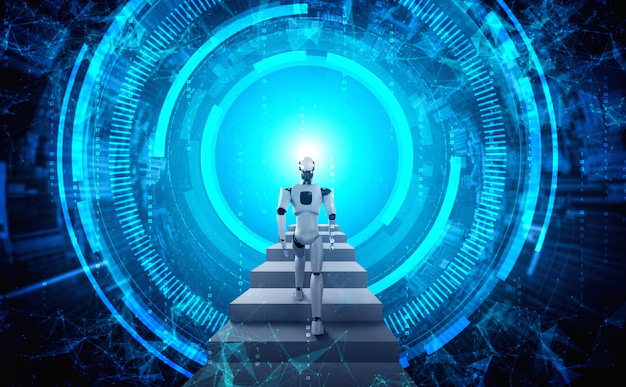
Technology has always played a pivotal role in the progression of human civilization. From the creation of the wheel to the rise of artificial intelligence (AI), every breakthrough has significantly impacted the way we live, work, and interact with the world. In recent decades, technological innovation has reached new heights, dramatically shaping the future and transforming society in ways once thought impossible.
The Beginnings of Technological Evolution
The early stages of technology were grounded in the most basic needs of survival. The first major advancement was the control of fire, followed by the invention of simple tools like the wheel and lever. These technologies set the foundation for civilization, allowing for the creation of agriculture, trade, and the development of complex societies.
With the Industrial Revolution in the 18th and 19th centuries, technology took a giant leap forward. The introduction of steam engines, mechanized farming, and mass production laid the groundwork for modern economies. As factories and industries flourished, new tools emerged, such as the telephone, the electric light bulb, and the internal combustion engine, changing the landscape of communication, work, and transportation.
The Rise of the Digital Era
The 20th century marked the beginning of the digital age, with the development of the first computers, the advent of the internet, and the rise of personal computing. These innovations transformed business, education, and personal lives by enabling rapid communication, easy access to information, and the ability to perform complex tasks with the help of digital tools.
The proliferation of smartphones and the rise of cloud computing in the 21st century have expanded our reliance on technology. Social media platforms, e-commerce, and digital entertainment have become integral parts of our daily existence. Artificial intelligence, machine learning, and automation are now at the forefront of technological innovation, promising even greater changes in the future.
Shaping the Future with Emerging Technologies
As we move further into the future, the impact of emerging technologies like AI, 5G, quantum computing, and biotechnology will be profound. AI is already transforming industries from healthcare to finance, while 5G technology is expected to revolutionize connectivity, offering faster internet speeds and enabling the growth of the Internet of Things (IoT). Quantum computing promises to solve complex problems that traditional computers cannot, and advancements in biotechnology may redefine medicine, leading to life-extending therapies and enhanced human capabilities.
These technologies are not only changing how we live but also raising new questions about ethics, privacy, and security. The future will require thoughtful consideration of how to balance innovation with responsibility, ensuring that these technologies are used for the betterment of humanity rather than creating further divides.
FAQs
- What is the role of artificial intelligence in shaping the future? AI is revolutionizing industries by automating tasks, improving decision-making, and providing insights that drive innovation. It will continue to transform fields like healthcare, finance, and education.
- How has technology impacted communication? Technology has made communication faster and more accessible through the internet, smartphones, and social media platforms, connecting people globally in real time.
- What are some of the most significant technological advancements in the 21st century? Key advancements include the internet, smartphones, cloud computing, artificial intelligence, and blockchain technology.
- What challenges do emerging technologies present? Emerging technologies raise concerns about privacy, data security, job displacement due to automation, and ethical dilemmas surrounding AI and genetic engineering.
- What is quantum computing and how will it shape the future? Quantum computing uses quantum bits to process information at speeds far beyond traditional computers. It holds the potential to revolutionize fields like cryptography and problem-solving.
- How has the Industrial Revolution influenced today’s technology? The Industrial Revolution sparked the development of machines, transportation, and communication tools, laying the foundation for modern technological advancements.
- What is the role of biotechnology in the future? Biotechnology will play a key role in advancing medicine, agriculture, and environmental sustainability, offering solutions like personalized medicine and genetically modified crops.
Conclusion
The evolution of technology has been a constant force shaping the future. From the simplest tools to the most advanced digital systems, each stage of technological development has redefined human capabilities. As we look to the future, emerging technologies promise to bring about even greater transformations in how we live, work, and interact with each other. The challenge lies in balancing innovation with ethical considerations to ensure a positive impact on society.
Key Takeaways
- Technology has evolved from basic tools to sophisticated digital systems, revolutionizing various aspects of life.
- The digital era and emerging technologies like AI, 5G, and quantum computing are expected to continue shaping the future.
- With technological advancements come new challenges related to ethics, privacy, and security.
- Thoughtful consideration and responsible innovation will be necessary to ensure technology benefits society as a whole.
